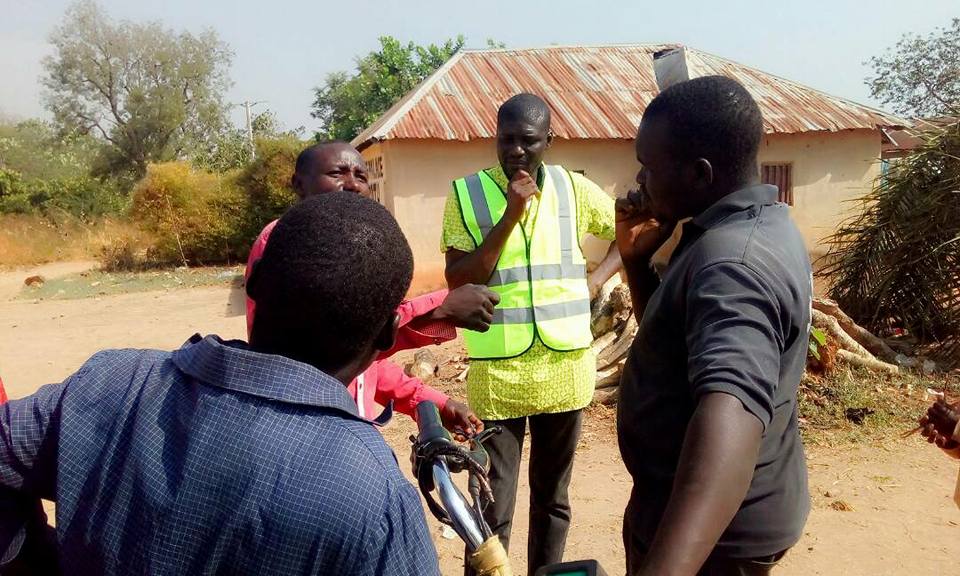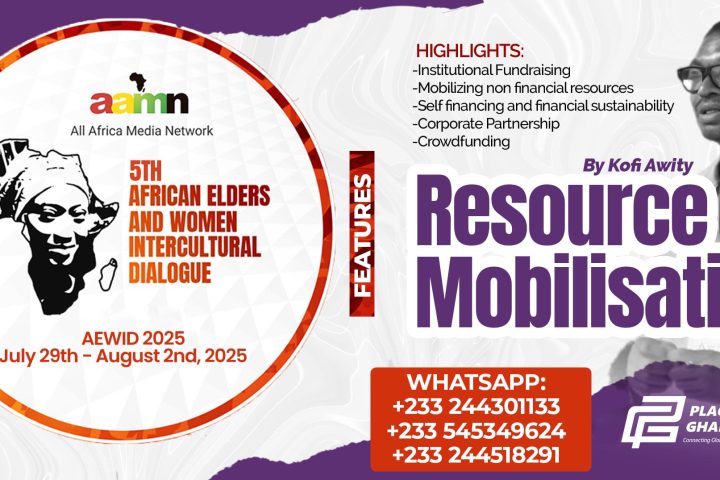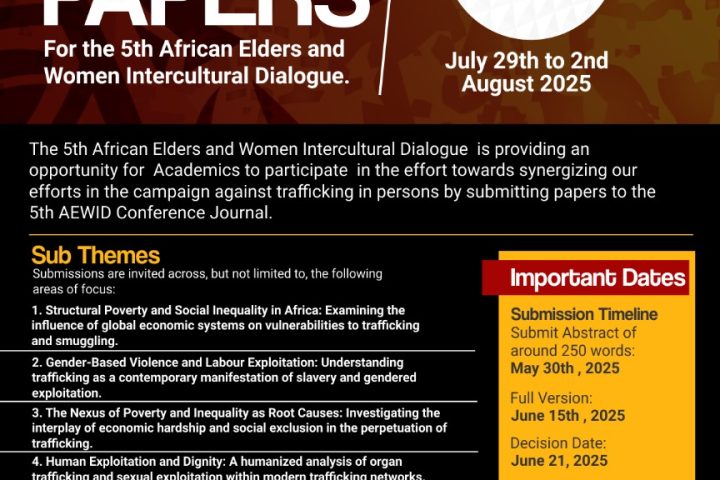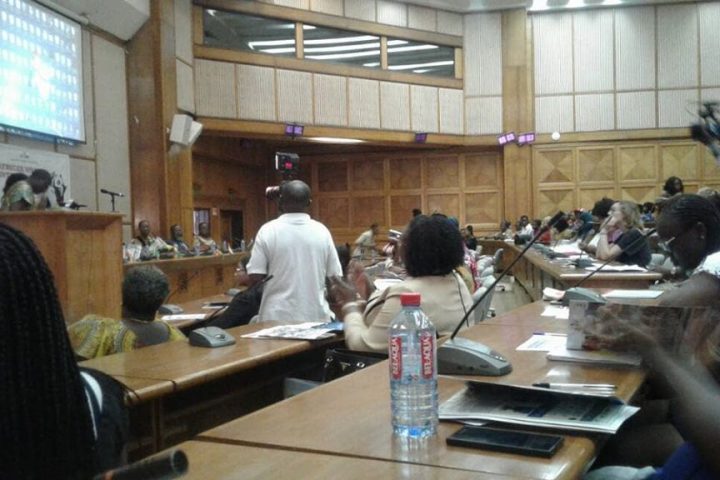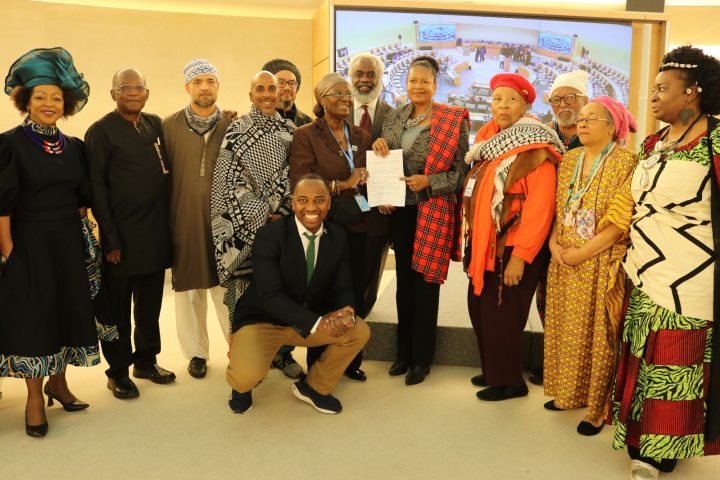John Ede is President & Humanitarian Coordinator of Ohaha Family Foundation, a Nigeria based NGO working to alleviate poverty, and human suffering, increasing access to basic social services to marginalized, cut-out people in Nigeria.
You are working and living in Nigeria, a country that is not so well known and not often in the news. However, there is a lot happening. Could you tell something about the situation in the country?
Nigeria has a population of over 200 million people in six geo-political regions. There is a lot of unrest in many of these regions. Insurgency in the Northeast, banditry and cattle rustling in the Northwest, and inter communal conflicts and farmers herder’s crisis in the Central North. The South-South region is faced with militancy, and the Southwest, and Southeast still have incidences of kidnapping and armed militia invasions. The over a decade insurgency in the Northeast has affected 8.3 million people in urgent need of humanitarian assistance, it brought over two million people in internal displacement and there are almost four hundred thousand refugees in neighbouring countries according to a report by UN OCHA.
Affected communities suffer; mass forced displacement, millions of people pushed down into poverty, many are facing kidnapping for ransom, and farms and livelihood destroyed. Hunger looms amidst high unemployment and high cost of living. Although the national government has made gains in curbing the security situation, it remains a major challenge due to its complexity, and the porous borders with neighbouring countries, a breeding ground for easy movement of armed groups and proliferation of arms across the borders.
Affected communities suffer mass forced displacement, millions pushed down into poverty, kidnapping for ransom, farms and livelihood destroyed hunger looms amidst high unemployment and high cost of living.
What is – according to your idea – the main problem in the country?
The situation in the country is multifaceted, with terrorism, banditry compounded by the high cost of living, low purchasing power and economic challenge. Besides this, there is the lack of sustained political will to continue programs and project initiated by past administrations. Also, the country has weak leadership capacity to manage the huge and complex population.
Majority of the humanitarian situations are caused due to vulnerability of the population to respond to the economic stresses and shocks hence exposes the population to recruitment by armed groups.
Although, progress has been achieved, it could be accelerated if there is a more coordinated and sustainable approach implemented in terms of the economic policies, and security systems to sustain the gains of progress.
Although, progress has been achieved, it could be accelerated if there is a more coordinated and sustainable approach in terms of the economic policies, and security systems to sustain the gains of progress.
How is it for you to see that the situation in Nigeria is not often spoken about?
It is concerning to note that the spotlight on the humanitarian and security situation has shifted to the more urgent economic concerns. Media organizations are business entities and have to deal with a short attention span of the public. They have to keep viewers engaged and make profit.
It is recommended that the national government keeps the media engaged for the stories to remain on the top burner, and that will require closer collaboration with both local and international media to sustain media focus.
What can the humanitarian sector do to help the people who are most suffering in the country?
In the affected regions, there is increased dependence on humanitarian aid, hence it is recommended to transition from ‘aid giving’ to ‘empowering’ the population, build resilience in terms of empowering the people to enhance their potentials leveraging on comparative advantage of each region. Voices of the affected population and beneficiaries we have interacted with, have raised their voices that they would rather provide for themselves than depend on aid, which is often unstable, erratic and insufficient. To highlight that point, most IDPs in Nigeria engage in farming, and local production but the crisis makes them feel disempowered and aid dependent.
What is needed? Urge the national, state and local government authorities to improve the security situation in their communities, for safe return. Promote empowerment of local communities with skills, tools and resources to equip them develop their own potentials.
Voices of the affected population and beneficiaries we have interacted with, raise concerns that they would rather provide for themselves by working with their hands, than depend on aid, which is often unstable, erratic and insufficient.
What should be the main focus for humanitarian activities?
Focus areas should be resilience building, capacity building, and empowerment of the local population to build on the resilience of the people in the country. Implement programs and projects that empower development of local communities. Transfer skills, knowledge and tools by providing support to local population and actors to enhance their capacity to design, and implement programs according to global standards.
What do you see as the downside of so many humanitarian organizations present in the country?
There are actually quite some downsides of humanitarian aid. To mention a few: competition for legitimacy and funding by both local and international organizations, lack of coordination in terms of program implementation, dispersed reporting system, increase in aid dependence by the affected population, disproportional wage disparities between national and international aid workers, and weak accountability and transparency between humanitarian actors and the beneficiaries. There is also the perception around terrorism financing, and donor fatigue due to the longevity of the humanitarian situation. Also, there is increased dependence on donor funding by the national government amidst the competing humanitarian needs.
I think organizations know that these downsides play a role when implementing programs, but we should talk about it more and address these. The moment that we will start doing that, we can improve humanitarian aid.
What is your vision for the future of the country?
A Nigeria in which people are known for their ingenuity, creativity and productivity, a restored nation in terms of its place in the league of nations that is known for its productivity, economic power and development, a country that is self-sufficient, and self-sustaining. I see a prosperous and united Nigeria of empowered people, equipped to leverage on its own potential to build a just, sustainable and prosperous nation.
I see a prosperous, united Nigeria of empowered people, equipped to leverage on its own potential to build a just, sustainable and prosperous nation.
Date: 23 November 2023
Author: Marianne Sijtsma
